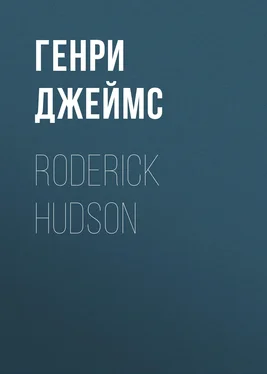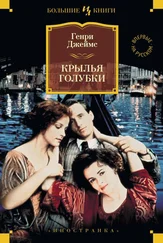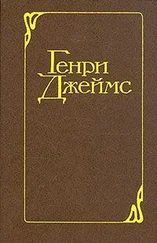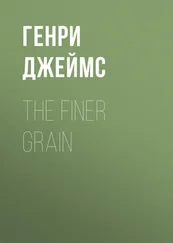Генри Джеймс - Roderick Hudson
Здесь есть возможность читать онлайн «Генри Джеймс - Roderick Hudson» — ознакомительный отрывок электронной книги совершенно бесплатно, а после прочтения отрывка купить полную версию. В некоторых случаях можно слушать аудио, скачать через торрент в формате fb2 и присутствует краткое содержание. Жанр: foreign_prose, foreign_antique, на английском языке. Описание произведения, (предисловие) а так же отзывы посетителей доступны на портале библиотеки ЛибКат.
- Название:Roderick Hudson
- Автор:
- Жанр:
- Год:неизвестен
- ISBN:нет данных
- Рейтинг книги:4 / 5. Голосов: 1
-
Избранное:Добавить в избранное
- Отзывы:
-
Ваша оценка:
- 80
- 1
- 2
- 3
- 4
- 5
Roderick Hudson: краткое содержание, описание и аннотация
Предлагаем к чтению аннотацию, описание, краткое содержание или предисловие (зависит от того, что написал сам автор книги «Roderick Hudson»). Если вы не нашли необходимую информацию о книге — напишите в комментариях, мы постараемся отыскать её.
Roderick Hudson — читать онлайн ознакомительный отрывок
Ниже представлен текст книги, разбитый по страницам. Система сохранения места последней прочитанной страницы, позволяет с удобством читать онлайн бесплатно книгу «Roderick Hudson», без необходимости каждый раз заново искать на чём Вы остановились. Поставьте закладку, и сможете в любой момент перейти на страницу, на которой закончили чтение.
Интервал:
Закладка:
Hudson smiled and stared. “A connoisseur?” he cried, laughing. “He ‘s the first I ‘ve ever seen! Let me see what they look like;” and he drew Rowland nearer to the light. “Have they all such good heads as that? I should like to model yours.”
“Pray do,” said Cecilia. “It will keep him a while. He is running off to Europe.”
“Ah, to Europe!” Hudson exclaimed with a melancholy cadence, as they sat down. “Happy man!”
But the note seemed to Rowland to be struck rather at random, for he perceived no echo of it in the boyish garrulity of his later talk. Hudson was a tall, slender young fellow, with a singularly mobile and intelligent face. Rowland was struck at first only with its responsive vivacity, but in a short time he perceived it was remarkably handsome. The features were admirably chiseled and finished, and a frank smile played over them as gracefully as a breeze among flowers. The fault of the young man’s whole structure was an excessive want of breadth. The forehead, though it was high and rounded, was narrow; the jaw and the shoulders were narrow; and the result was an air of insufficient physical substance. But Mallet afterwards learned that this fair, slim youth could draw indefinitely upon a mysterious fund of nervous force, which outlasted and outwearied the endurance of many a sturdier temperament. And certainly there was life enough in his eye to furnish an immortality! It was a generous dark gray eye, in which there came and went a sort of kindling glow, which would have made a ruder visage striking, and which gave at times to Hudson’s harmonious face an altogether extraordinary beauty. There was to Rowland’s sympathetic sense a slightly pitiful disparity between the young sculptor’s delicate countenance and the shabby gentility of his costume. He was dressed for a visit—a visit to a pretty woman. He was clad from head to foot in a white linen suit, which had never been remarkable for the felicity of its cut, and had now quite lost that crispness which garments of this complexion can as ill spare as the back-scene of a theatre the radiance of the footlights. He wore a vivid blue cravat, passed through a ring altogether too splendid to be valuable; he pulled and twisted, as he sat, a pair of yellow kid gloves; he emphasized his conversation with great dashes and flourishes of a light, silver-tipped walking-stick, and he kept constantly taking off and putting on one of those slouched sombreros which are the traditional property of the Virginian or Carolinian of romance. When this was on, he was very picturesque, in spite of his mock elegance; and when it was off, and he sat nursing it and turning it about and not knowing what to do with it, he could hardly be said to be awkward. He evidently had a natural relish for brilliant accessories, and appropriated what came to his hand. This was visible in his talk, which abounded in the florid and sonorous. He liked words with color in them.
Rowland, who was but a moderate talker, sat by in silence, while Cecilia, who had told him that she desired his opinion upon her friend, used a good deal of characteristic finesse in leading the young man to expose himself. She perfectly succeeded, and Hudson rattled away for an hour with a volubility in which boyish unconsciousness and manly shrewdness were singularly combined. He gave his opinion on twenty topics, he opened up an endless budget of local gossip, he described his repulsive routine at the office of Messrs. Striker and Spooner, counselors at law, and he gave with great felicity and gusto an account of the annual boat-race between Harvard and Yale, which he had lately witnessed at Worcester. He had looked at the straining oarsmen and the swaying crowd with the eye of the sculptor. Rowland was a good deal amused and not a little interested. Whenever Hudson uttered some peculiarly striking piece of youthful grandiloquence, Cecilia broke into a long, light, familiar laugh.
“What are you laughing at?” the young man then demanded. “Have I said anything so ridiculous?”
“Go on, go on,” Cecilia replied. “You are too delicious! Show Mr. Mallet how Mr. Striker read the Declaration of Independence.”
Hudson, like most men with a turn for the plastic arts, was an excellent mimic, and he represented with a great deal of humor the accent and attitude of a pompous country lawyer sustaining the burden of this customary episode of our national festival. The sonorous twang, the see-saw gestures, the odd pronunciation, were vividly depicted. But Cecilia’s manner, and the young man’s quick response, ruffled a little poor Rowland’s paternal conscience. He wondered whether his cousin was not sacrificing the faculty of reverence in her clever protege to her need for amusement. Hudson made no serious rejoinder to Rowland’s compliment on his statuette until he rose to go. Rowland wondered whether he had forgotten it, and supposed that the oversight was a sign of the natural self-sufficiency of genius. But Hudson stood a moment before he said good night, twirled his sombrero, and hesitated for the first time. He gave Rowland a clear, penetrating glance, and then, with a wonderfully frank, appealing smile: “You really meant,” he asked, “what you said a while ago about that thing of mine? It is good—essentially good?”
“I really meant it,” said Rowland, laying a kindly hand on his shoulder. “It is very good indeed. It is, as you say, essentially good. That is the beauty of it.”
Hudson’s eyes glowed and expanded; he looked at Rowland for some time in silence. “I have a notion you really know,” he said at last. “But if you don’t, it does n’t much matter.”
“My cousin asked me to-day,” said Cecilia, “whether I supposed you knew yourself how good it is.”
Hudson stared, blushing a little. “Perhaps not!” he cried.
“Very likely,” said Mallet. “I read in a book the other day that great talent in action—in fact the book said genius—is a kind of somnambulism. The artist performs great feats, in a dream. We must not wake him up, lest he should lose his balance.”
“Oh, when he ‘s back in bed again!” Hudson answered with a laugh. “Yes, call it a dream. It was a very happy one!”
“Tell me this,” said Rowland. “Did you mean anything by your young Water-drinker? Does he represent an idea? Is he a symbol?”
Hudson raised his eyebrows and gently scratched his head. “Why, he ‘s youth, you know; he ‘s innocence, he ‘s health, he ‘s strength, he ‘s curiosity. Yes, he ‘s a good many things.”
“And is the cup also a symbol?”
“The cup is knowledge, pleasure, experience. Anything of that kind!”
“Well, he ‘s guzzling in earnest,” said Rowland.
Hudson gave a vigorous nod. “Aye, poor fellow, he ‘s thirsty!” And on this he cried good night, and bounded down the garden path.
“Well, what do you make of him?” asked Cecilia, returning a short time afterwards from a visit of investigation as to the sufficiency of Bessie’s bedclothes.
“I confess I like him,” said Rowland. “He ‘s very immature,—but there ‘s stuff in him.”
“He ‘s a strange being,” said Cecilia, musingly.
“Who are his people? what has been his education?” Rowland asked.
“He has had no education, beyond what he has picked up, with little trouble, for himself. His mother is a widow, of a Massachusetts country family, a little timid, tremulous woman, who is always on pins and needles about her son. She had some property herself, and married a Virginian gentleman of good estates. He turned out, I believe, a very licentious personage, and made great havoc in their fortune. Everything, or almost everything, melted away, including Mr. Hudson himself. This is literally true, for he drank himself to death. Ten years ago his wife was left a widow, with scanty means and a couple of growing boys. She paid her husband’s debts as best she could, and came to establish herself here, where by the death of a charitable relative she had inherited an old-fashioned ruinous house. Roderick, our friend, was her pride and joy, but Stephen, the elder, was her comfort and support. I remember him, later; he was an ugly, sturdy, practical lad, very different from his brother, and in his way, I imagine, a very fine fellow. When the war broke out he found that the New England blood ran thicker in his veins than the Virginian, and immediately obtained a commission. He fell in some Western battle and left his mother inconsolable. Roderick, however, has given her plenty to think about, and she has induced him, by some mysterious art, to abide, nominally at least, in a profession that he abhors, and for which he is about as fit, I should say, as I am to drive a locomotive. He grew up a la grace de Dieu, and was horribly spoiled. Three or four years ago he graduated at a small college in this neighborhood, where I am afraid he had given a good deal more attention to novels and billiards than to mathematics and Greek. Since then he has been reading law, at the rate of a page a day. If he is ever admitted to practice I ‘m afraid my friendship won’t avail to make me give him my business. Good, bad, or indifferent, the boy is essentially an artist—an artist to his fingers’ ends.”
Читать дальшеИнтервал:
Закладка:
Похожие книги на «Roderick Hudson»
Представляем Вашему вниманию похожие книги на «Roderick Hudson» списком для выбора. Мы отобрали схожую по названию и смыслу литературу в надежде предоставить читателям больше вариантов отыскать новые, интересные, ещё непрочитанные произведения.
Обсуждение, отзывы о книге «Roderick Hudson» и просто собственные мнения читателей. Оставьте ваши комментарии, напишите, что Вы думаете о произведении, его смысле или главных героях. Укажите что конкретно понравилось, а что нет, и почему Вы так считаете.












